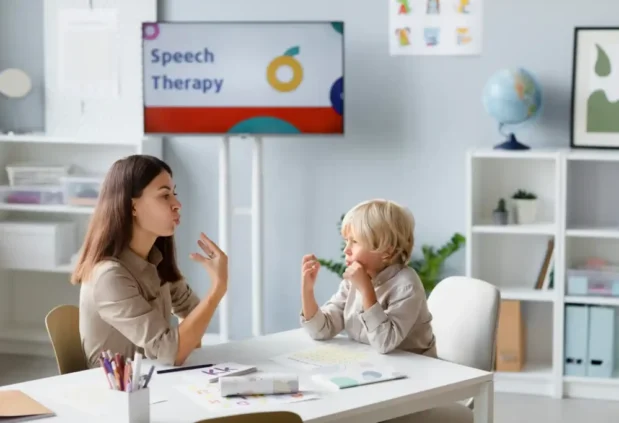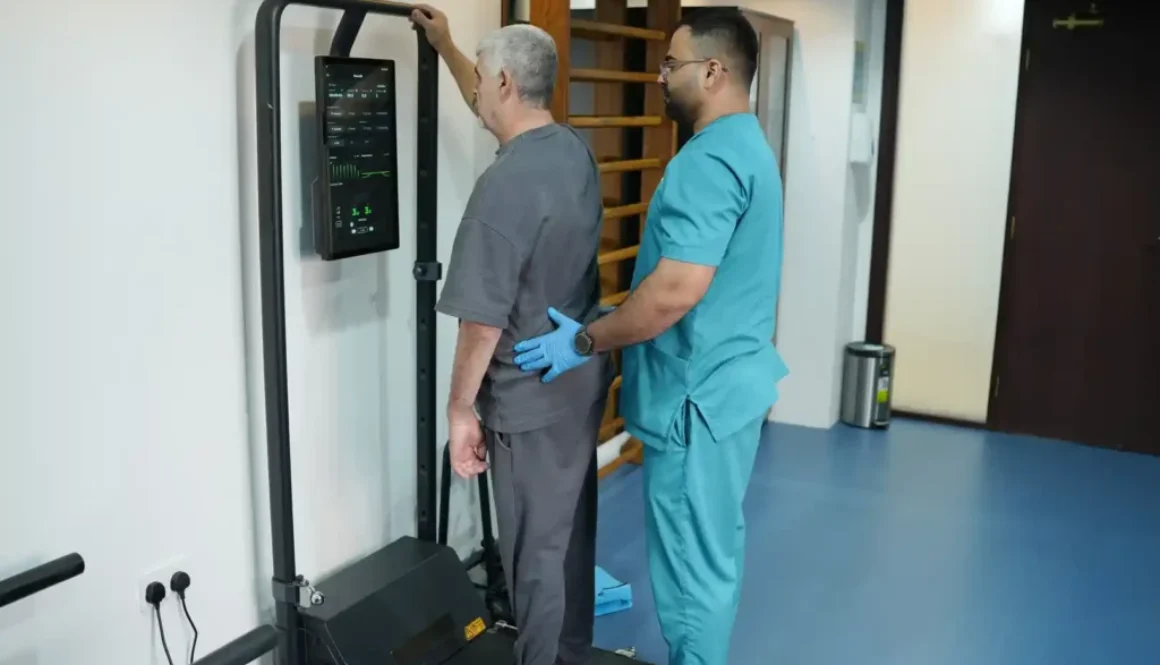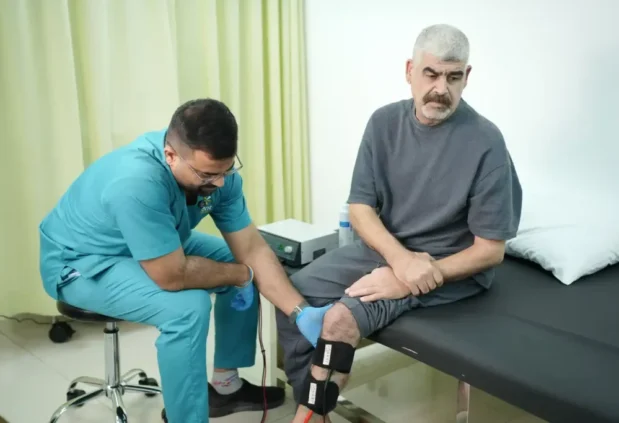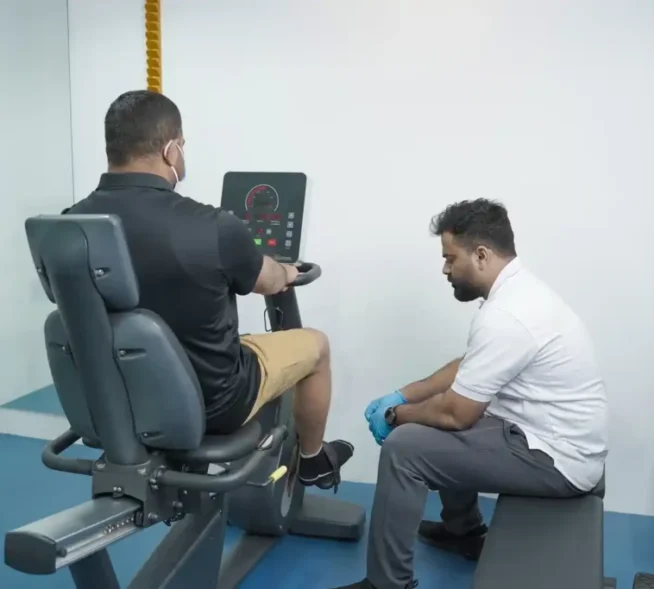VR Rehabilitation in Dubai | Advanced Virtual Reality Therapy at Kent Healthcare
VR Rehabilitation in Dubai | Advanced Virtual Reality Therapy at Kent Healthcare
Introduction to VR Rehabilitation in Dubai
Healthcare is rapidly evolving, and VR rehabilitation in Dubai is transforming the way patients recover from injury, illness, and neurological conditions. At Kent Healthcare, we integrate Virtual Reality (VR) technology with evidence-based physiotherapy and neurorehabilitation to deliver innovative, effective, and engaging treatment programs.
Virtual reality rehabilitation uses immersive digital environments to stimulate the brain and body simultaneously. Patients perform therapeutic exercises within interactive virtual settings that promote movement, balance, coordination, cognition, and functional independence. This modern approach enhances motivation, improves compliance, and accelerates recovery outcomes.
As a leading healthcare provider, Kent Healthcare proudly offers VR rehabilitation in Dubai, helping patients of all ages achieve better rehabilitation results through cutting-edge technology and expert clinical care.
What Is Virtual Reality Rehabilitation?
Virtual Reality Rehabilitation is a technology-driven therapy method that uses computer-generated environments to assist physical and neurological recovery. Patients interact with virtual scenarios using motion sensors, VR headsets, or screen-based systems while performing prescribed therapeutic movements.
Unlike traditional therapy alone, VR rehabilitation provides:
Real-time feedback
Goal-oriented tasks
Multisensory stimulation
Engaging and interactive exercises
This makes VR rehabilitation in Dubai an ideal solution for patients seeking advanced, personalized, and results-focused rehabilitation.
Why VR Rehabilitation Is the Future of Therapy
Virtual Reality is revolutionizing rehabilitation worldwide, and Dubai is at the forefront of adopting this innovation. The benefits of VR rehabilitation include:
Enhanced neuroplasticity
Improved motor learning
Increased patient motivation
Objective progress tracking
Safe and controlled therapy environments
At Kent Healthcare, our VR rehabilitation programs are clinically supervised to ensure safety, accuracy, and measurable improvement.
VR Rehabilitation at Kent Healthcare, Dubai
Kent Healthcare is a trusted provider of VR rehabilitation in Dubai, offering advanced therapy solutions supported by licensed and experienced professionals. Our VR rehabilitation services are tailored to each patient’s diagnosis, abilities, and rehabilitation goals.
Our Approach
-
Comprehensive assessment
-
Personalized VR therapy plans
-
One-on-one supervised sessions
-
Regular progress evaluation
-
Integration with physiotherapy and neurorehabilitation
Conditions Treated with VR Rehabilitation in Dubai
1. Stroke Rehabilitation
VR rehabilitation plays a vital role in post-stroke recovery by improving:
Arm and hand function
Walking and balance
Coordination and motor control
Cognitive and visual skills
Stroke patients benefit from repetitive, task-based VR exercises that stimulate brain recovery and functional independence.
2. Neurological Rehabilitation
VR therapy is highly effective for neurological conditions such as:
Parkinson’s disease
Multiple sclerosis
Brain injury
Spinal cord injury
Through immersive environments, VR rehabilitation in Dubai helps retrain movement patterns, enhance balance, and reduce fall risk.
3. Orthopedic Rehabilitation
For musculoskeletal injuries and post-surgical recovery, VR rehabilitation supports:
Joint mobility
Strength training
Functional movement restoration
Pain reduction
Patients recovering from fractures, ligament injuries, or joint replacements experience improved engagement and outcomes with VR-based therapy.
4. Pediatric Rehabilitation
Children respond exceptionally well to VR therapy due to its interactive and playful nature. VR rehabilitation helps children with:
Developmental delays
Cerebral palsy
Coordination disorders
Motor skill challenges
At Kent Healthcare, pediatric VR rehabilitation is safe, fun, and goal-oriented.
5. Balance and Fall Prevention
VR rehabilitation in Dubai is widely used to address balance disorders and dizziness by simulating real-life scenarios in a controlled environment.
Benefits of VR Rehabilitation in Dubai
Choosing VR rehabilitation at Kent Healthcare offers numerous advantages:
Improved Engagement: Patients stay motivated through interactive therapy
Faster Recovery: Enhanced repetition and feedback improve outcomes
Objective Tracking: Data-driven performance analysis
Customized Programs: Therapy adjusted to patient progress
Safe Environment: Controlled simulations reduce risk
Mental Stimulation: Cognitive and emotional engagement
How VR Rehabilitation Enhances Neuroplasticity
Neuroplasticity is the brain’s ability to reorganize and form new connections. VR rehabilitation stimulates neuroplasticity by:
Repeating meaningful tasks
Engaging visual and auditory feedback
Encouraging problem-solving
Activating multiple brain regions
This makes VR rehabilitation in Dubai especially effective for neurological and stroke patients.
Technology Used in VR Rehabilitation at Kent Healthcare
Kent Healthcare uses advanced, clinically approved VR rehabilitation systems that include:
Motion tracking sensors
Interactive screens or headsets
Gamified therapeutic environments
Real-time performance feedback
All VR systems are integrated with physiotherapy protocols and supervised by trained therapists.
Personalized VR Therapy Programs
Every patient is unique. Our VR rehabilitation programs are personalized based on:
Medical diagnosis
Functional limitations
Rehabilitation goals
Age and ability level
This individualized approach ensures maximum benefit from VR rehabilitation in Dubai.
Book an appointment
Booking an appointment with our team of professionals is just a few taps away. Book now!





















